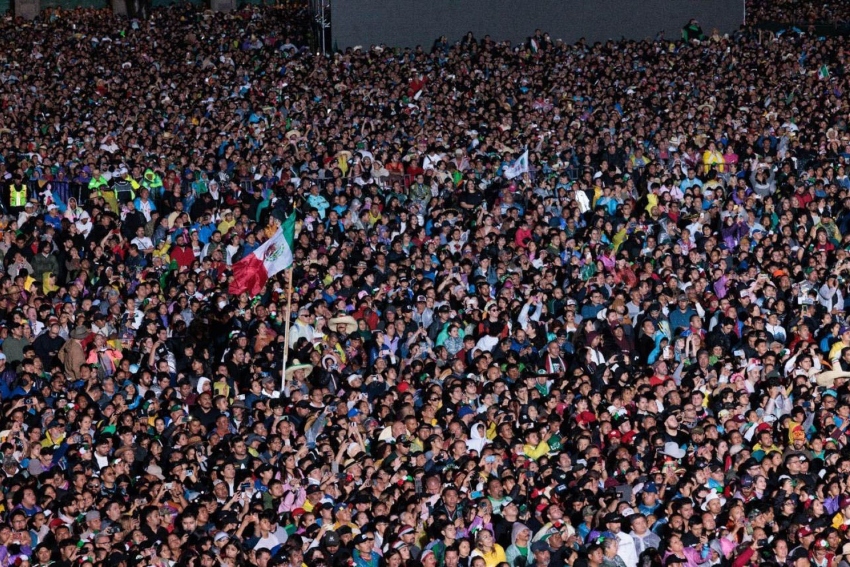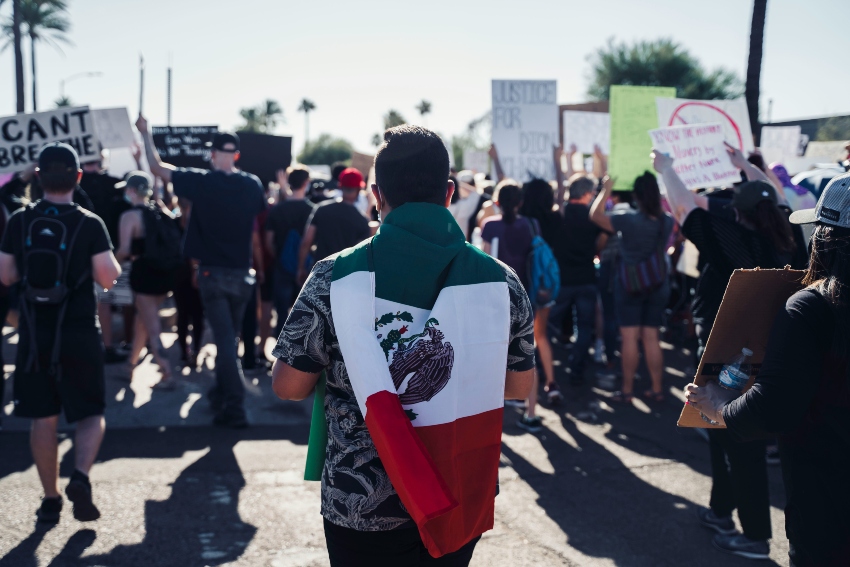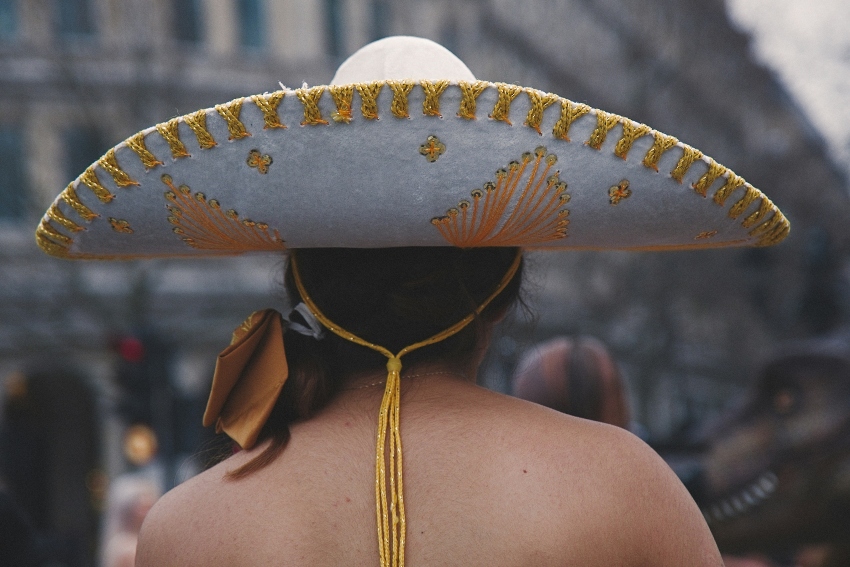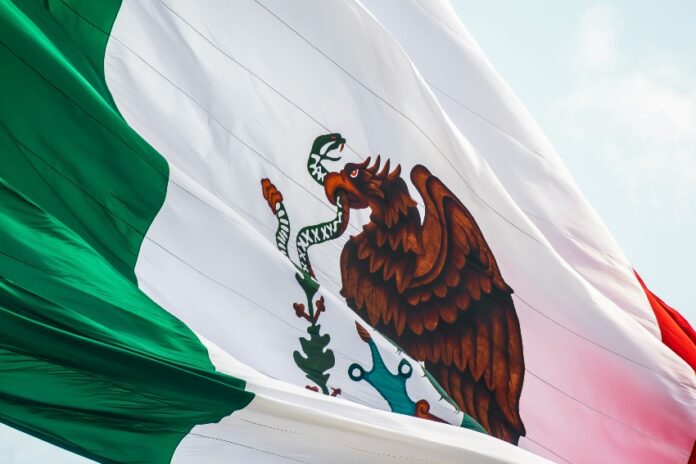On Mexico’s Independence Day, I wanted to reflect on something that has always fascinated me: the complicated relationship Mexicans have with Mexico. While most of us — if not all of us — feel a deep sense of pride in being Mexican, we can’t help but also feel disappointed about our country.
This dual feeling generally plays out in our daily lives. Yet, it is never more visible than on Independence Day.

On this day, we go big on the celebrations, filling up public plazas. We drink tequila, sing along with mariachi groups and gather with friends and family to cry “¡Viva México!” with all our hearts.
But in between the passionate cries and intense displays of love for our country, one can often hear people saying, “It’s a shame we have so many issues.” Or, “It’s a shame that we have accomplished so little.” Or, “It’s a shame there’s an insecurity crisis,” and more from this endless list of collective frustrations.
This paradox is not new. It is one I grew up seeing in my parents, as they did in theirs, passing it down like an inheritance to younger generations. It’s intense love and pain, along with intense pride and disappointment – all at the same time.
While I write from personal experience, this paradox is anything but individual. It’s woven into Mexican society regardless of where we live. A quick scroll through X (formerly Twitter) will reveal thousands of posts that perfectly capture the dual sentiment. Memes that mix pride with sarcasm, complaints about the political system and comments revealing nostalgia and hope.
It doesn’t matter if you live in Mexico City, in a small town or abroad (like me) – we all share the duality. It’s a sentiment you’ll find at a family dinner table, social events and even football stadiums. It is everywhere.
What fuels the paradox? I have some ideas.
Cultural nationalism

From a very young age, children in Mexico are instilled with a profound sense of admiration and respect for our national symbols, our national heroes and our heritage and traditions. This is usually done through civic and cultural events that highlight what it means to be Mexican.
Every Monday, for instance, schools will have a ceremony dubbed “honores a la bandera” in which all students and staff gather in the central yard to pay tribute to the flag as they sing the national anthem. I’ve discovered this practice is not common abroad, however beneficial it is to promote love for a country — although the United States is a country that does share this practice.
Beyond the school environment, families celebrate national holidays by incorporating elements of our living heritage, showing children the profound impact our traditions still have on our daily lives. From piñatas at birthday parties to building altares de muertos on Day of the Dead, we are taught that Mexican folklore is something to be proud of and meant to be displayed at every given opportunity.
All these practices help us Mexicans not only to love our culture and our heritage, but feel proud of it. Yet, this deep love clashes with the deep distrust many Mexicans feel towards our government.
Distrust in our institutions
Mexicans love Mexico, but not their government. Mexicans love their people, but not their politicians.
Separating one feeling from the other is hard, thus fueling the Mexican paradox.

Most of the time, Mexicans complain about problems emanating from the government: corruption, inefficient bureaucracy, seemingly endless violence, lack of equitable access to justice, poor public services and infrastructure. The list is long.
Beyond these issues, there’s a widespread perception that institutions do not represent Mexicans but rather the interests of those in power. This feeling of abandonment causes many of us to view politics with cynicism and a lack of trust. For many of us, it’s hard to believe that better times lie ahead, and we blame our politicians for the direction our country is headed.
Joseph de Maistre said that “every country has the government it deserves.” So, I wonder – what would happen if an ordinary citizen were given, overnight, a public office? Would he act as corruptly as the politicians we criticize, or would he rise to the challenge and let honesty and justice lead his decisions?
Perhaps that’s why the line is blurry between our disappointment with the government and love for our people. Because, after all, our politicians were once ordinary people.
Comedy as a shield
Amidst these complex feelings, we don’t lose hope. On the contrary, we have developed an enormous capacity for resilience in our everyday lives. This resilience is usually mixed with humor, serving as a coping mechanism to endure everyday challenges.
Again, a quick scroll on social media will reveal hundreds of humorous memes addressing every kind of complaint.

Finding laughter in our own adversities is our superpower, probably reflecting why Mexicans consistently rank among the 10 happiest countries in the world.
For example, this meme was trying to normalize flooded streets when it rains.
Imagínate vivir en Suiza y perderte esto… 🇲🇽 pic.twitter.com/n1R3iMunhP
— David Medrano Mora (@deividmedrano) July 16, 2021
This one address the significant operational and structural problems of the Maya Train, which has derailed several times since it opened in late 2023.
Internet nunca olvida… pic.twitter.com/5rI0Pvf0mi
— Chumel Torres (@ChumelTorres) August 20, 2025
Humor is not only normalized but encouraged even by political figures who are, at times, victims of it.
“I’d like to take this opportunity to thank those who created unforgettable memes for their attention, talent, irreverence and grace,” political analyst Dennise Dresser said last year, after memes of herself went viral on social media. “I will incorporate them into the iconography of this six-year term. They made me laugh, and at myself too. I hope they continue to share more through this medium [social media].”
And so, from the average citizen to the most intellectual character, we all love Mexico despite feeling deeply frustrated at the same time. We celebrate its culture, laugh at its problems and continue to believe that the best is yet to come. Because if there is one thing that defines us Mexicans, it’s the intense love and unshakable hope that we feel for our country.
Gabriela Solis is a Mexican lawyer turned full-time writer. She was born and raised in Guadalajara and covers business, culture, lifestyle and travel for Mexico News Daily. You can follow her lifestyle blog Dunas y Palmeras.
